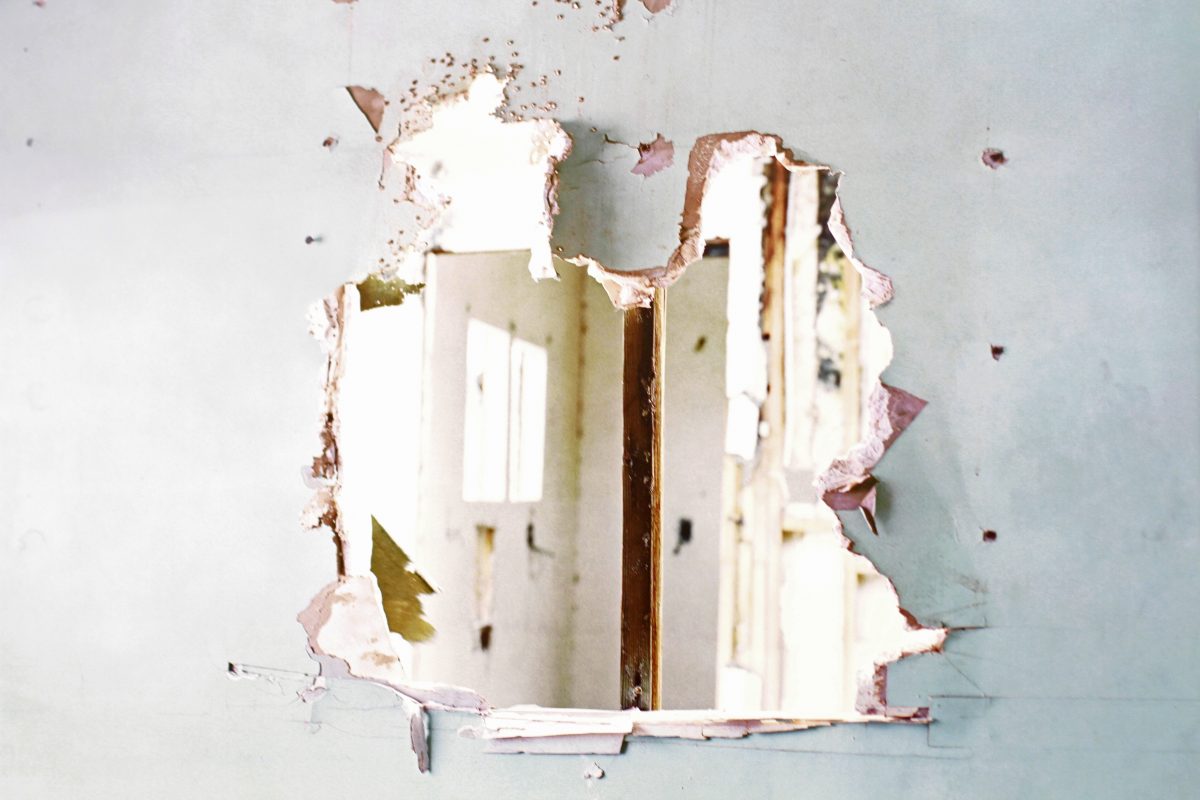Andy Stoddard ~ The Gift of Brokenness

I’m a pretty happy and optimistic guy. I tend to believe the best of other people, and by and large, I expect things to work out alright. I take Romans 8:28 literally and seriously – God will somehow work out things for good.
I tend to be an optimistic and grace-full preacher. I believe in hell, but I’m not a hellfire preacher. I tend to think that grace is a greater motivator to faithfulness than fear is. I have always taken Paul’s words in Romans 2:4 to heart with my preaching: “Or do you despise the riches of his kindness and forbearance and patience? Do you not realize that God’s kindness is meant to lead you to repentance?” I like to leave people with a pep in their step on Sunday morning. I like to leave them with grace on their lips. I want them to enter into the world hopeful, peaceful, and more focused on Jesus than on their sin.
Except for Lent.
In Lent, yes, we need to know that we are loved. But there is something else we need to know. We need to know this – we are sinful. We are broken. We are fallen. We are ashes, and to ashes we will return.
We can’t run from this. No matter how powerful, wealthy, famous, or holy we are, we are ashes. No matter how great of an influencer on social media we are, we are ashes. No matter how big a church we are part of, we are ashes. We are ashes. We are broken. We are sinful.
And you know what?
This realization of brokenness is one of the greatest gifts we can ever receive. Lent is a powerful and beautiful reminder of the gift of that realization. Once we receive this gift, we can truly live. This realization gives us several life-changing truths.
First, brokenness is equality. We are all the sons and daughters of Adam and Eve. We all inherit original sin. In our age, we like to talk more about “sins” than our “sinful nature.” Sins are things we do (what I jokingly call smoking, drinking, and cussing). In our minds, there is always someone worse than us. Yeah, we’ve messed up, but look at them. They are much worse than we can ever be.
If we look at our brokenness in terms of sin, then there are stratifications. There are better and worse than’s. But that is not how we are called to look at it. We are all sinful. It isn’t just that we have all messed up, but it is that we all have a broken, sinful nature. We all desire that which is sinful. You, me, our moms and dads, our preachers and bishops, all of us. We are all “sinful.” Jesus didn’t just come to forgive for our sins; he came to free us and restore us. When Adam and Eve fell, our nature was corrupted. That affects every last one of us. Charles Wesley put it this way in his great hymn Love Divine:
Take away our bent to sinning;
Alpha and Omega be
We all have that “bent to sinning.” Everyone one of us. All of us. You are sinful.You are broken. You are. Yes. You. Me. All of us.
But here is the joy: that truth doesn’t make you the scum of the earth. It makes you human. We are all broken. We are all sinful. We are all frail.
There is equality in our brokenness. We all stand equal before God, no matter what. We are all broken. That makes us all equal, no matter what.
Second, brokenness is clarity. If we ever, ever, ever really understand our brokenness, then we have the ability to see ourselves as we really are. Broken and in need of a Savior. When we understand that, then healing can really begin.
One of the best books I’ve ever read is The Ragamuffin Gospel by Brennan Manning. If you’ve not read it, you need to stop what you are doing, go and buy it, and read it. In this book, he deals with our need for grace and the reckless God who gives us grace, unearned. Listen to what he writes:
At Sunday worship, as in every dimension of our existence, many of us pretend to believe we are sinners. Consequently all we can do is pretend to believe we have been forgiven. As a result, our whole spiritual life is pseudo-repentance and pseudo-bliss.
This clarity – you are sinful, I am too – when we realize that, when we truly know that we are sinful, then we are able to clearly see how amazing God’s grace is. God knows the worst about us and loves us anyway. Our brokenness gives us clarity to see ourselves as we are, and to see just how much God truly loves us.
Finally, brokenness is opportunity. When we know our brokenness, as well as God’s great love for us, in spite of it all, we have an opportunity – an opportunity to be remade, reformed, reborn. We go from being the Pharisees thankful that we are not tax collectors to the tax collector simply thankful for God’s love.
Understanding our brokenness allows us to truly reveal and marvel in God’s grace. Understanding our brokenness puts on the path of recovery, the path of wholeness, the path of holiness. This path that understands it’s not about our morality and getting it right, but it’s about our humility and submission to Jesus and following Jesus.
Our brokenness is our opportunity to be truly faithful.
This Lent, you are sinful. You are imperfect. You are broken. So am I. May we take this realization as a means of grace. And may we allow ourselves to be recreated into the people that God is calling us to be. We are equal in brokenness, we are equally in grace. May this gift make us whole.